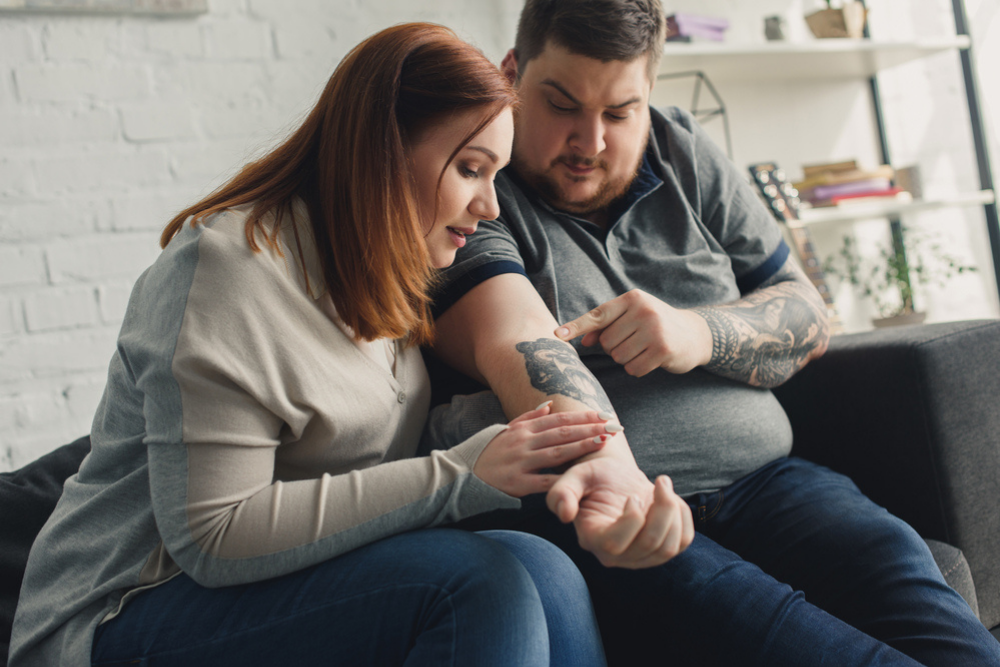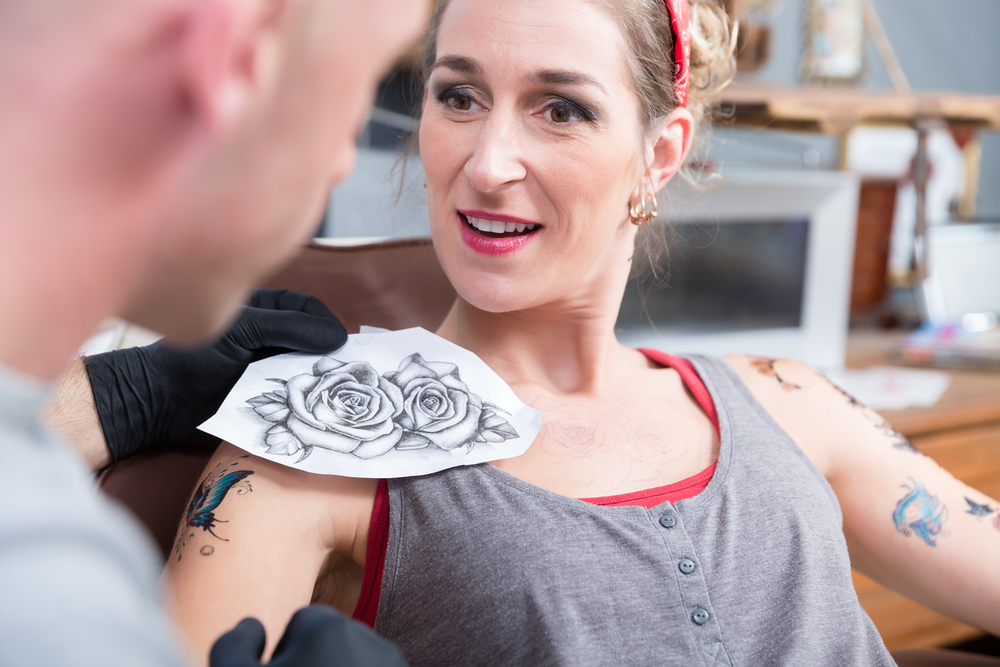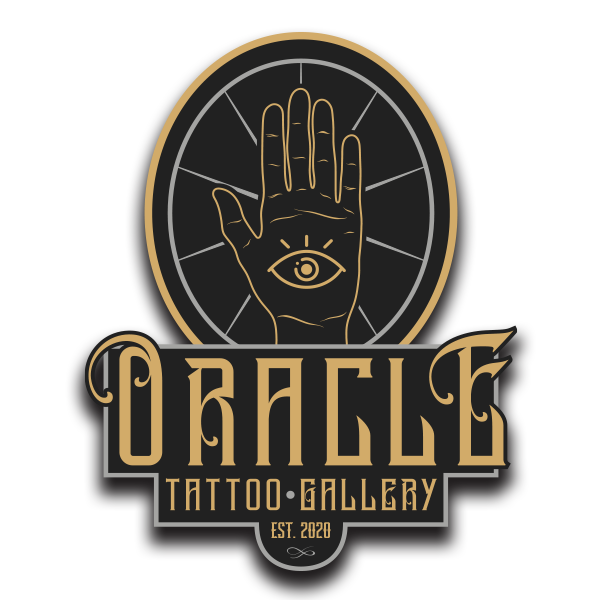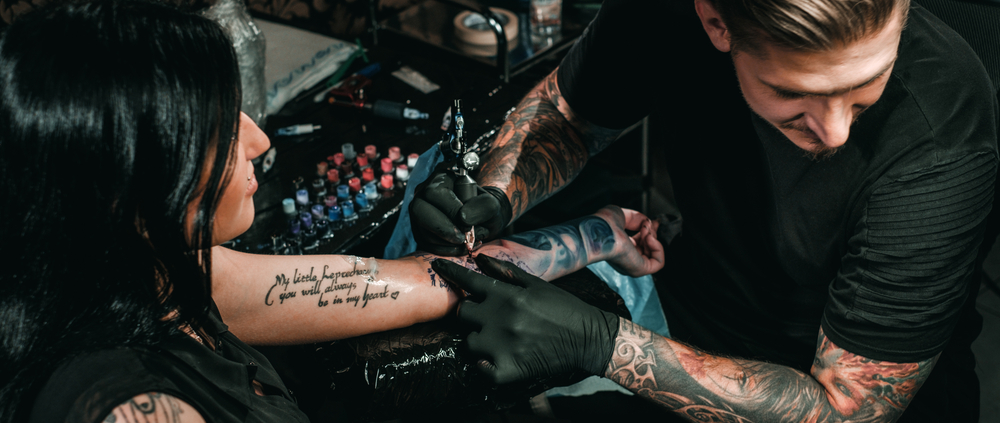How Long Will A New Tattoo Be Sore For?
Tattoos have become increasingly accepted and popular even in ordinary social circles these days. While most individuals who decide to get a tattoo understand that the process itself can bring some discomfort, this, of course, varies depending on the person’s pain tolerance, how large the tattoo design is and where the tattoo is placed on the body.
However, many prospective tattoo enthusiasts wonder how long a tattoo will continue to be sore after the session is finished according to many tattoo artists including those at Oracle Tattoo Gallery.
How Long Will A New Tattoo Be Sore For?
In the best of circumstances, a tattoo should be sore for about 3 to 7 days after the tattoo session. Again, this timeline will vary somewhat between different individuals, their pain tolerance level, how well they follow aftercare instructions and tattoo placement, size and ink colors used among other contributing factors.
In general, expect the initial soreness at the tattoo site to be most bothersome in the initial first few days. This is because a tattoo is considered a fresh skin wound that will need time to heal completely. Great care should be taken in those first few days to keep the tattoo site covered as directed, usually the first 24 hours or so, avoid irritating soaps or lotions, especially those with fragrances, and avoid touching the tattoo or wearing constricting clothing that will cause a friction rub if the clothing is near to the tattoo site.
After the first week or so, the tattoo should begin to develop a scab. This can cause the skin around the tattoo site to become itchy, and individuals should avoid picking or scratching the scab to promote faster healing and decrease chances of infection and tattoo design or color alterations until the scab is fully healed after it dries and flakes away on its own time.
The scabbing process may last for a few weeks. Tattoos should not be exposed to water, irritating skincare products or sunlight until fully healed. If everything goes according to plan, a tattoo will be the sorest only for the first few days or say. Afterwards, the soreness should begin to ease and itching of the skin will begin during the scab forming and healing process until the tattoo heals completely in a few weeks’ time.
What Makes A New Tattoo Sore?
There are several reasons that make a new tattoo sore. These contributing factors will vary from one individual to the next depending on the specific circumstances involved.
Tattoo soreness depends on several contributing factors that include:
- Tattoo size and location
- Artist’s degree of skill
- Tattoo ink colors used – red ink may cause greater skin sensitivity
- Hygiene of tattoo artist
- Hygiene of tattoo recipient
- Whether a person develops adverse consequences like allergies or infection
- Overall health of individual at time of tattoo session
- How well aftercare instructions are followed
- Pain tolerance level
- Sensitivity of skin

Why Size & Placement Of Tattoo Matters When It Comes To Soreness
Any tattoo will have some discomfort associated with the process. This is because the tattoo artist must use penetrating needles to set the tattoo design in place usually by using a tattoo machine. While each small prick of the needle is nothing more than a stinging or buzzing type sensation, when combining the entire tattoo process, those small discomforts can seem magnified.
So, even the best tattoo artist may cause some discomfort during the tattoo process itself. The size of the tattoo design also matters when it comes to degree of soreness during and immediately after the session. Obviously, a larger tattoo will take longer and require more needle insertions to properly outline and then fill in the design with ink.
Placement of the tattoo on the body also makes a difference in degree of discomfort. Tattoos placed in more sensitive areas of the body will, of course, likely be sorer afterwards. The sensitive body areas include hands, palms, feet, soles of feet, front of neck, head, inner arm, elbows, ankles, breasts and even the buttocks.
Any area of the body where the skin moves, like near a joint, will also contribute to a tattoo’s healing and possibly cause greater discomfort during the initial healing phase after the tattoo is finished. Body areas that contain a lot of nerves also are more sensitive and could cause increased discomfort at least for the initial healing stages.
A Tattoo Artist’s Degree Of Skill & Technique Also Matters
Some tattoo artists are more “heavy-handed” when completing a tattoo. Usually, this is more of a problem with newer artists or those unfamiliar with the tattoo equipment they use.
Following Aftercare Instructions Is Key To Less Soreness Overall
The most important part of a tattoo’s healing is dependent on how the tattoo recipient follows their aftercare instructions. The hygiene of how the person performs this, as well as how the tattoo shop and artist follow recommended hygiene practices also is important for better healing.
Allergic Reactions And/Or Development Of An Infection Leads To Greater Discomfort
It is essential to carefully monitor tattoo site for signs and symptoms of either an allergic reaction or a skin infection. These are the two troublesome after tattoo complications that can lead to greater overall healing discomfort.
Avoidance Of Water & Sun Exposure Is Crucial For Proper Healing
Only short showers are permitted in the early post-tattoo stage. Swimming in salt or freshwater bodies of water increases risks of infections due to the presence of many microorganisms and debris. Pools and hot tubs also pose increased infection risks. Always cover healing tattoos fully when outdoors, and wear sunscreen after tattoo is healed.

How To Help A Tattoo Heal Painlessly
- Follow all aftercare instructions
- Reschedule a tattoo if ill
- Do a patch test of tattoo ink to check for allergies
- Avoid soaking tattoo in water until healed
- Avoid touching a fresh tattoo
- Wear loose clothing to avoid friction rubs on new tattoos
- Avoid sun exposure during healing and wear sunscreen after healed
- Report adverse symptoms promptly to doctor and/or tattoo artist
- Avoid fragrances in soaps and irritating skincare products
Can I Take Pain Killers To Deal With Tattoo Soreness?
Pain relieving medications may increase bleeding when taken before a tattoo session. Anti-inflammatory drugs also may thin blood and make it clot slower. This can be a problem as the tattoo process is delicate and excess bleeding can impede the artist’s view.
Most professional tattoo artists that work in better Philadelphia tattoo shops discourage use of pain medications prior to tattoo session. It is permissible to take these medications afterwards in most cases.
Conclusion
Some discomfort is to be expected when getting a tattoo and during the initial healing process. There are things that individuals can do to lessen this discomfort like avoiding sun and water exposure and using only natural skincare products during healing stages.
If interested in getting a tattoo or if you have further questions regarding soreness related to tattoos, find a professional tattoo shop nearby by inserting “local tattoo shops near me” into an Internet search engine bar. Oracle Tattoo Gallery can be reached at 215-638-1601.




